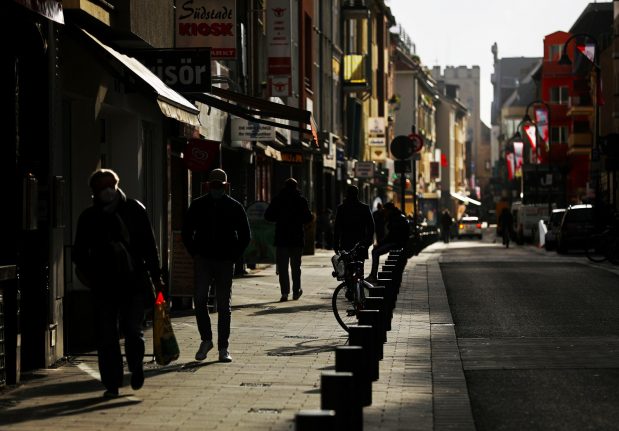“The measures that we are taking now – for me they are not a complete lockdown, there are still too many exceptions,” RKI head Lothar Wieler told a press conference in Berlin.
There is “total consensus” among statisticians that stricter measures would be needed to get “to a stage where the incidence rate is falling substantially and rapidly”, the RKI's Dirk Brockmann added.
As we reported, Wieler also urged people in Germany to “stay at home” and avoid travel in a bid to get the numbers down and over concerns about the Covid-19 variants spreading.
READ ALSO: 'Please stay at home': RKI boss issues urgent appeal to German residents
Germany has continued to see high infection rates despite being in some form of shutdown since the beginning of November.
The RKI on Thursday reported 25,164 new cases in 24 hours and a record 1,244 deaths, with many regions saying hospitals are struggling to cope with the influx of patients.
Bars, gyms, cultural and leisure centres were closed in early November, followed by non-essential shops and schools in December.
Authorities have also turned the screw on social gatherings, limiting contacts to two households and urging people to stay at home wherever possible.
But mobility has been significantly higher during the second shutdown than during the first round of restrictions in the spring, according to the RKI.
READ ALSO: Germany logs new record of Covid-19 deaths amid worries of 'pandemic fatigue'
“There is a lot of common sense, but there are also a lot of exceptions, especially when it comes to mobility. People are on the road a lot,” Brockmann said.
Scientists agree that “the rules that lead to fewer contacts simply have to be tightened” in order to meaningfully bring down the incidence rate, he said.
Wieler urged companies to allow more staff to work from home whenever possible.
Germany, with 83 million people, began vaccinating against Covid-19 in late December and on Thursday passed the milestone of one percent of the population receiving their first jab, according to the RKI.



 Please whitelist us to continue reading.
Please whitelist us to continue reading.
Member comments